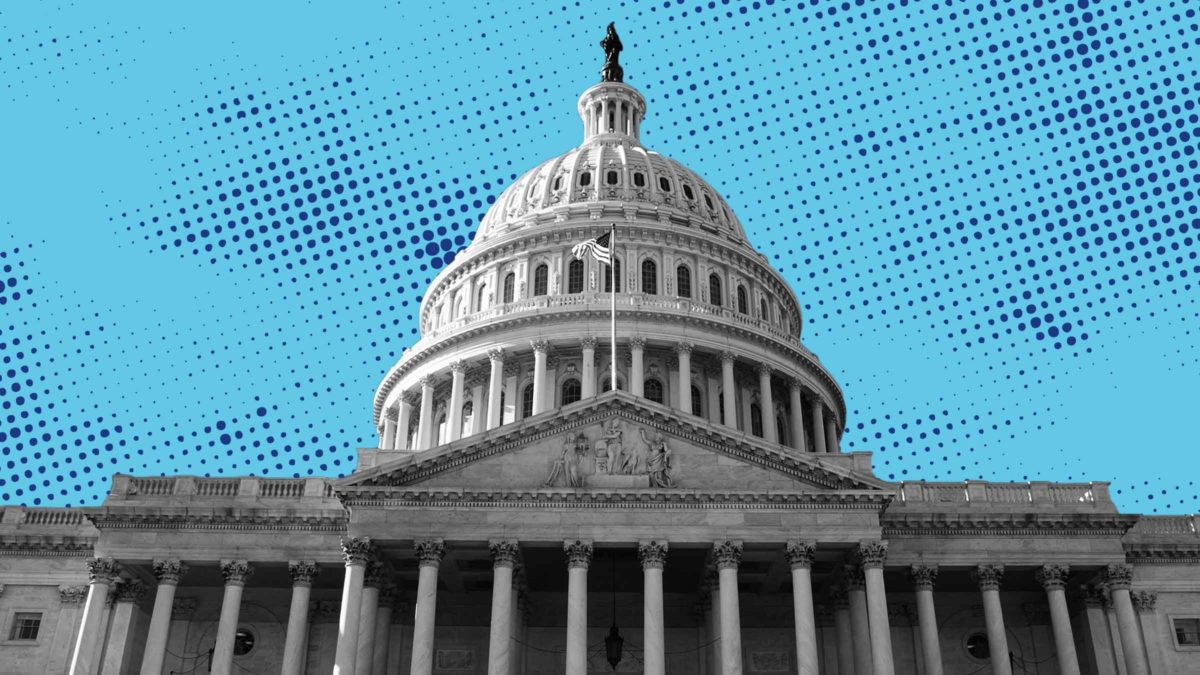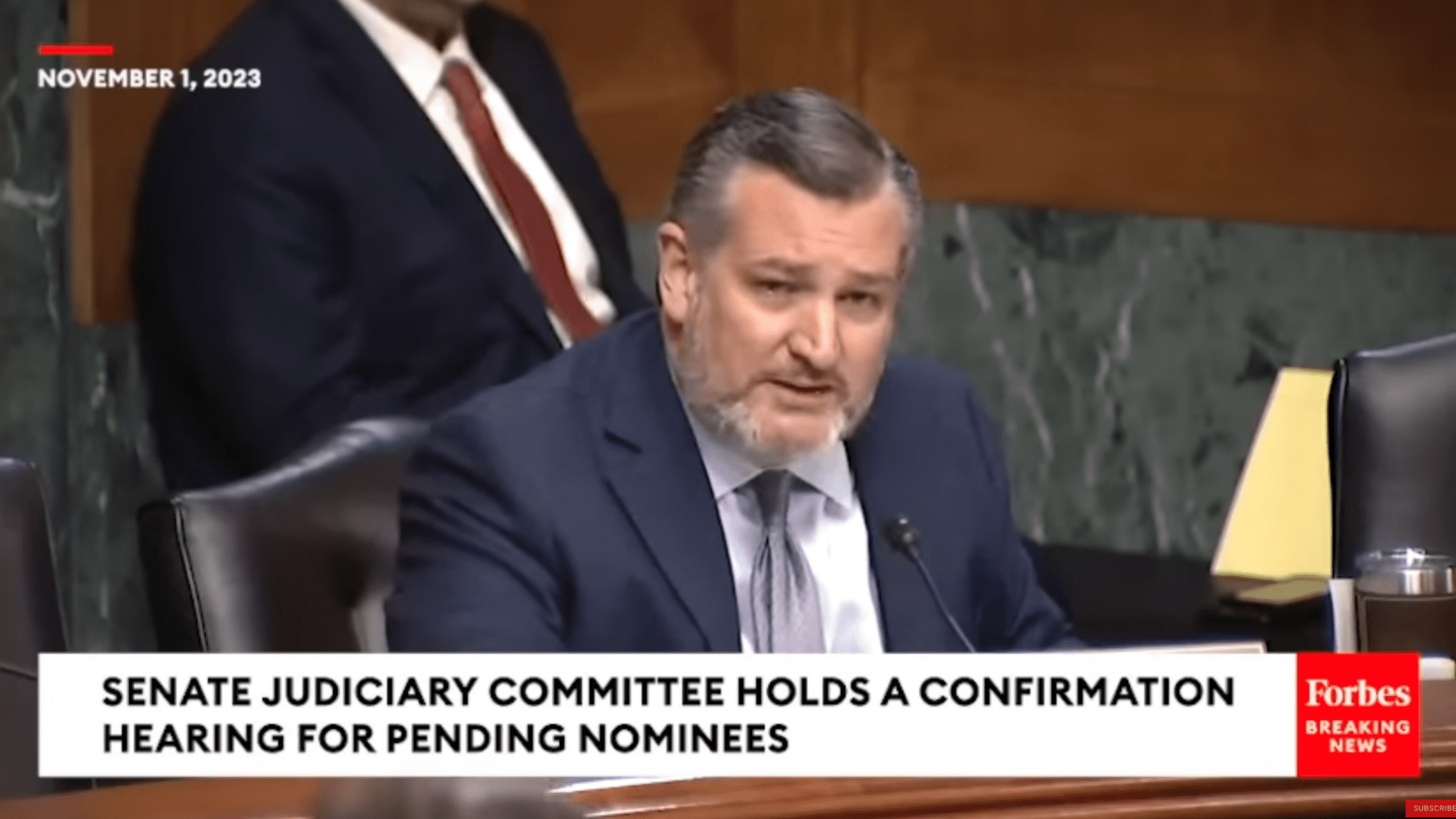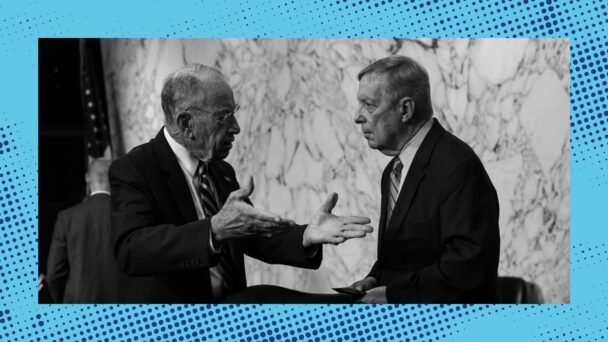The Senate Judiciary Committee did something on Wednesday that, at least historically, it has done only rarely: it considered the nomination of a former public defender to a federal judgeship. The Committee’s resident conservative lawyers remained very true to form, though, as a couple blowhard senators spent the hearing outraged by the idea that recognizing the humanity of criminal defendants could have any role in the legal system.
In October, President Joe Biden nominated Sarah French Russell, a law professor and former federal public defender, to a federal district court in Connecticut During her confirmation hearing, she incurred the made-for-TV wrath of Republican Senators John Kennedy of Louisiana and Ted Cruz of Texas because she signed onto an open letter in March 2020 urging Connecticut’s governor, Ned Lamont, to free people from the state’s prisons in order to protect them from the COVID-19 pandemic. The letter specifically called on the Governor to release people in pretrial detention, to prioritize the release of people who are elderly or immunocompromised, and to declare a moratorium on incarcerating anyone else. “In the absence of immediate and decisive action,” the letter warned, “incarceration will turn into a death sentence for many of our community members.”
On Wednesday, the senators suggested that Russell’s choice to sign the letter showed that she is incapable of fulfilling the duties of a judge. Kennedy accused Russell of sounding “like a district attorney in San Francisco,” a reference to Chesa Boudin, whose recall last year was fueled by similarly cynical attacks from right-wing pundits. Kennedy also asked Russell how she was “ever going to send somebody to prison” if she believes prisons are, as the letter says, “detrimental to public health and human rights and disproportionately harm marginalized communities.” After Russell assured him that she “understands the role of the judge,” Kennedy replied, “That’s not what you say here.”
Cruz howled that the letter’s recommendation to release legally innocent people “means murderers, it means serial rapists, it means child molesters” running loose on the streets. Russell indicated and reindicated that she believes “releases need to be consistent with public safety.” Cruz, like Kennedy, replied “that’s not what this letter says.”
Clip via YouTube
The letter—which Cruz described as “extraordinary,” “astonishing,” “kooky,” and “not within the bounds of the mainstream”—garnered over 1,500 signatories, who argued that the “pandemic is throwing into sharp relief the untenable state of our penal system and the need for sustained action to shrink its scale, size and scope.” It correctly observed that prisons are petri dishes, and asked the government to please stop putting people inside for the sake of public health and safety. In many respects, this is a mainstream position: Congress has enacted bipartisan legislation to reduce America’s massive prison population, and during the height of the COVID-19 pandemic, the high court in Kennedy’s own state of Louisiana asked all of the state’s judges to keep people out of jail whenever possible.
No one with a moral compass could consider it a hindrance to job performance to admit that incarcerated people should not be sentenced to death by disease. But the criminal legal system is utterly lost in a wilderness of cruelty. The senators’ criticisms of Russell here conflate maintaining impartiality with perpetrating injustice, and view judges as glorified chauffeurs to jail cells. This thinking often determines who becomes the country’s top legal decisionmakers: The bench is mostly filled with ex-prosecutors and corporate attorneys who represent the interests of oil spills and greenhouse gas emissions. President Joe Biden has made a concerted effort to appoint more professionally diverse judges, but with centuries of catching up to do, public defenders like Russell are still something of a rarity.
Senators like Kennedy and Cruz perpetuate the idea that adding people like Russell to the judiciary would threaten public safety and impair the functioning of the legal system. But this takes for granted just how dangerous the system’s functioning already is. Attacking Russell for sticking up for incarcerated people during a public health crisis shows how much work remains to be done to make the system even a little humane—and how important it is to have people who understand this on the federal bench.





